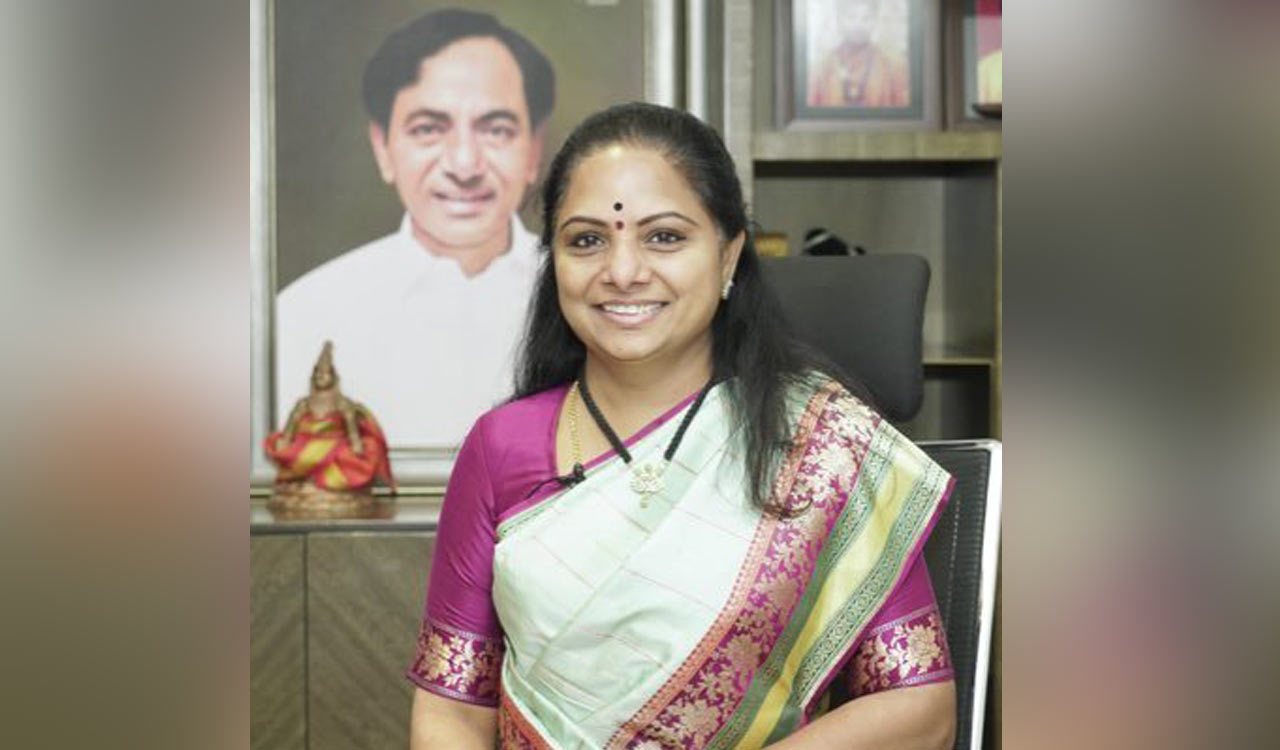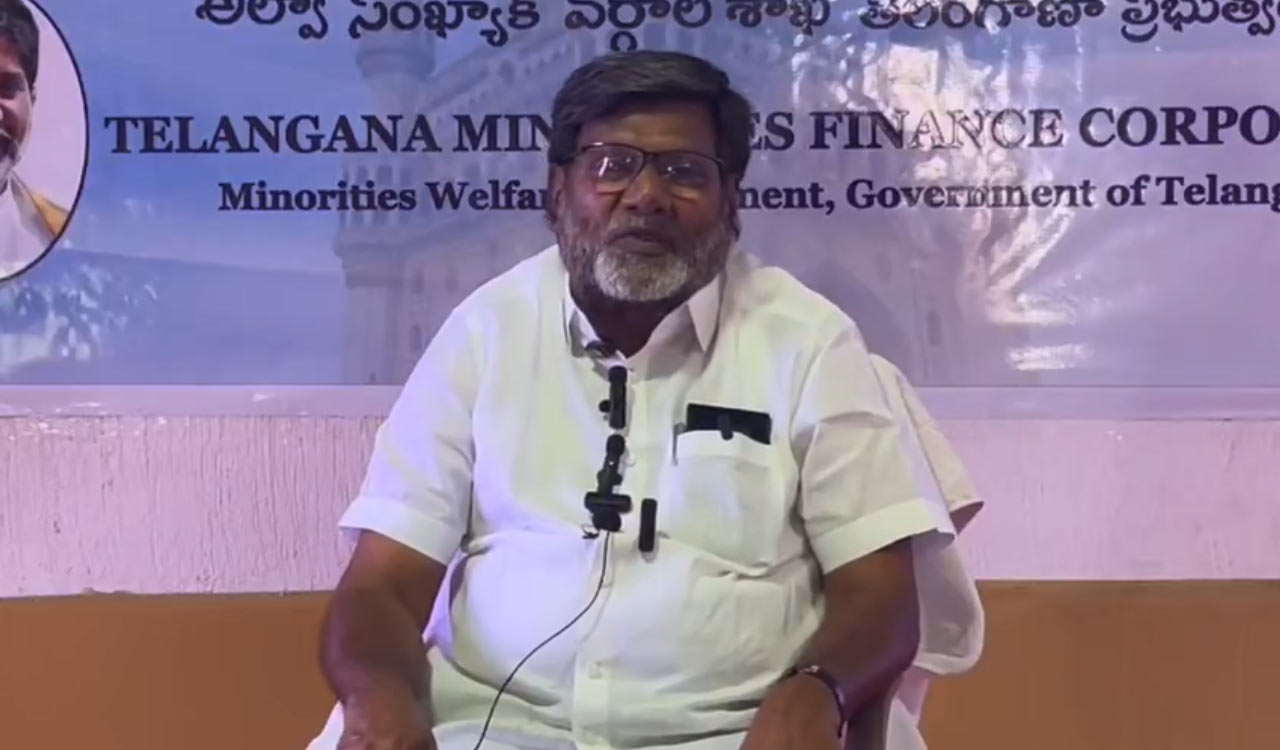Rewind: Marketing Academia
As HEIs are pushed into industry-academic linkage to ensure accountability and measurable contributions to society, a host of questions flutter out from the shady groves of academia.

By Pramod K Nayar
Hyderabad: There is an increasing emphasis, thanks to the National Education Policy (NEP), on academia moving out of academia. Higher Educational Institutions (HEIs) are to ensure, says the NEP, that ‘students … will be provided with opportunities for internships with local industry’. ‘Successful research’, it states, ‘will be recognised, and where relevant, implemented through close linkages with governmental agencies as well as with industry and private/philanthropic organisations’.
This rhetoric of linkage invites a host of questions.
A market-determined curriculum?
As an instance of such successful linkages, the controversial publishing giant, Elsevier, documented in 2015 that academic-corporate co-authored publications have risen steadily. In its comment on the phenomenon, Elsevier said:
University researchers are good at finding difficult problems and having the freedom to pursue different solutions; companies are good at taking discoveries and developing them.
This is more or less what the NEP also claims.
But if the industry were to design curricula, what would that be? In recent times, an implicit move towards such a determination by the market has appeared on the scene, particularly with the creation of the Gujarat GIFT-city.
Who could quarrel with the assumption that HEIs ought to gear their wards for the employment market? Then, if the employment market is our foundational motif, surely the market ought to determine what we teach and how? And this latter question is the one that unsettles the HEI, particularly in the ‘liberal arts’, whose fundamental claim is that it deals in/with the marketplace of ideas than just any marketplace, as philosophers like Martha Nussbaum have reiterated ad infinitum.
It also implies that on their own, the liberal arts cannot address the grand challenges of the time. As a recent essay in the European Journal of Futures Research says:
most current grand research and development challenges require multidisciplinary cooperation and especially software systems are ever more connected and cross-cutting. Both intra-organizational and inter-organizational co-creation and learning networks are increasingly critical success factors.
This insistence is driven by a double-crisis.
Calls for greater accountability, in terms of learning, completion, affordability, student satisfaction, from HEIs have been issued again
A double crisis?
This double crisis is of relevance and accountability. Institutional autonomy cannot any longer be separated from institutional autonomy. Stephen Mintz puts it bluntly in January 2022 in Inside Higher Ed:
It’s high time to hold institutions accountable for learning, completion, affordability, equity, student satisfaction and program outcomes.
Are our disciplines (I speak of the Humanities) relevant? If so, can we state this relevance in two sentences without lapsing into obscurantism? Does reading the tubercular Keats or the recluse Pynchon enable the student to get jobs, become a better citizen, accept social roles and address multiple challenges? Pulitzer winner and Harvard faculty Louis Menand is categorical on the matter:
Professors are not themselves, for the most part, terribly practical people, and practical skills are not what they are trained to teach. They are trained to teach people to do what they do and to know what they know. Those skills and that knowledge are not self-evidently transferable. The ability to analyze Finnegans Wake does not translate into an ability to analyze a stock offering. If a person wanted to analyze stock offerings, he should not waste his time with Joyce. He should go to business school. Or get a job analyzing stock offerings.
Have we seen clear enunciations about our relevance (unless making these claims gets the faculty API [academic performance indicators] and the next, usually undeserved, promotion, they won’t even make the claims!)? And what does X or Y discipline do, and enable people to do? Why should the youth want to do what the discipline trains them to do?
An implicit move towards curricula determined by the market has appeared on the scene, particularly with the creation of the Gujarat GIFT-city
The Government of India in an extraordinary but unimplementable accountability move called for proposals for ‘Institutions of Eminence’ (IoEs) where the HEIs must align their teaching-research programmes with those practised in globally revered institutions, in order to become ‘world class’. It followed this up with the unthinkable: it asked, in June 2020 through a letter issued to IoEs through the UGC, to benchmark their publications, discipline-wise, against the publications from the global top 100 universities.
These were measures to seek accountability beyond numbers in HEIs that were receiving greater funding and (notionally at least) greater autonomy. Accountability in this case is not merely quantificatory, but an accountability to the discipline: to compare and see how we fare, within our discipline, with the rest of the world teaching and researching in the same discipline. But such moves meet resistance mainly from the liberal arts, thus lending a malodorous air to any initiative to better ourselves, and giving the phrase ‘rank-and-file’ — of HEIs — a whole new olfactory twist.
In terms of disciplines, we need to ask: are we as trendy, responsive as the world’s best in the field? Are we pedagogically on par with the best? How best can globally circulating ideas and texts address local conditions, crises and requirements? Can we, for example, get Shakespeare to ‘speak to’ our present, showing us how power, tyranny, racism and patriarchy operate in the guise of benevolence, ‘national pride’ and protectionism? An expanded definition of accountability would help HEIs raise the quality of teaching-research so as to fit our students not just into the local work/culture but also into a global one.
Disciplinary rather than quantificatory accountability ensures the publicness of a public university, but this too runs into problems because of a well-established ‘fear of small numbers’ and institutional performance apathy, an apathy that produces a two-tier structure, faculty and fauxculty, to coin a portmanteau term. Calls for greater accountability emerge from precisely this apathy of the HEIs.
Sustained performance apathy by institutions — the refusal to assess and reward performance — has created a two-tier system, of faculty and fauxculty
Heads of HEIs are deathly scared of accountability, and of accounting for their small number of better performers because then the larger throng of underperformers — the fauxculty — would bay for their (the heads’) blood. Accountability in HEIs means levelling all production (publications, output) into a homogeneous mass: total number/average number without identifying those who produced 15 papers and those who produced 1. In the process, those who contribute most to the discipline’s visibility and growth are dumped alongside those who do not. This is how we fail disciplines.
Accountability worries HEIs because they do not wish to be assessed with brutal honesty, except in so far as filling up some forms. This means the HEIs are self-serving, as Menand noted:
Since it is the system that ratifies the product … the most important function of the system is not the production of knowledge. It is the reproduction of the system. To put it another way, the most important function of the system … is the production of the producers… Professors tend increasingly to think alike because the profession is increasingly self-selected.
Curricula, pedagogy and research are directed at perpetuating faculty advancement and mutual endorsements. HEIs are driven to producing more faculty, Menand suggests, who will then assess each other in that grimy process we term ‘peer-review’, and their drive is not directed at knowledge production.
Can we get Shakespeare to ‘speak to’ our present, showing us how power, tyranny, racism operate in the guise of benevolence, ‘national pride’ and protectionism?
A system geared towards assessment as HEIs are, cannot not be assessed in turn. The disciplines we teach cannot be caught either in a time-warp or a time-lag. As public institutions in a globalised world, HEIs cannot afford to stay within just local habitations.
But, should accountability to disciplines and a global civil society be determined by the industry or by the practitioners of the disciplines themselves?
A Model Code?
Much critical work has been produced on the academia-industry linkage. For instance, the Academic-Industry Research Network (TheAIRNet), in existence since 2010, was set up to
understand the ways in which, through investment in productive capabilities, businesses and governments can contribute to equitable and stable economic growth, or what we call “sustainable prosperity”; and, second, to help shape current discourse on the economy by communicating our findings and their implications to policy-makers, the media, and the informed public…
TheAIRNet shows how the industry subverts processes and goals such as green economies.
Other commentaries have been more cautiously welcoming. In a 2019 essay in Political Science and Politics, Gary King (Harvard) and Nathaniel Persily (Stanford) discuss their project ‘Social Science One’ — a network of academics. The project has logistical support from Harvard’s Institute for Quantitative Social Science and the Social Science Research Council. The project’s focus is to ‘study the incendiary issues surrounding the impact of social media on elections and democracy’. For this study, the data came from Facebook, ‘eight ideologically and substantively diverse charitable foundations provide initial funding’. The authors ask whether either of the two approaches of the Social Sciences to collecting big data — one emphasising academic independence at all costs, the other where academics become consultants to companies invoking conflict of interest issues, among others — works. Their solution is worth quoting in full:
The first group is composed of independent academics who apply to study specific topics, are awarded data access, and have freedom to publish without firm approval. The second group, serving as a trusted third party, includes senior, distinguished academics who sign nondisclosure agreements with the firm, forego the right to publish on the basis of the data in return for complete access to the data and all other necessary information from the firm. This trusted third party thus provides a public service by certifying to the academic community the legitimacy of any data provided … In this way, the trusted third party can encourage research on topics important to new and not-yet-public developments in the industry.
Questions of academic credibility are of course paramount, and so they write:
Social Science One has the obligation to report to the public —without permission from the company—about whether the company is keeping its end of the bargain, providing the commission full access, and answering all relevant questions…
The working group’s decision-making body must consist of ideologically diverse but academically respected — with an unquestionable publishing/research record — group. In this model, disciplines and approaches, rigour and data-security are all respected, they argue.
Whether industry-academic linkage will allow the same degree of academic freedom is a major question, and demands a model code of conduct before inking such a linkage
All this begs the question whether a model code of conduct for the linkage needs to be developed, one that respects academic freedom, offers greater transparency and accountability, and enables an HEI’s primary stakeholders, the students, an edge. What may be urgently needed before we rush full tilt into the linkage-tunnel is not only an overhauling of our institutional and disciplinary structures, but also a code of conduct.
Concerned about the rapid internationalisation of UK’s HEIs, a ‘Model Code of Conduct’ has been developed by a group of academics and published in The International Journal of Human Rights notes (we could replace ‘internationalisation of higher ed’ with ‘industrialisation of higher ed’):
Internationalisation can … give rise to challenges to academic freedom and the safety of members of the academic community, particularly when the international actor(s) involved seeks to curtail or shape intellectual inquiry and/or critical thinking about particular topics… Violations of the right to academic freedom in this context can involve and result in surveillance, intimidation, self-censorship, suspension, being banned from academic posts, persecution, attacks, visa denials …
The cost to the Humanities when we rush into the hyped-up linkage cannot at this point be calculated. But, with the increasing calls for accountability and such collaborations the rather sedate, meditative pace the field sets — about which we write in trashy journals, ensuring that no one reads them — will require acceleration in teaching, curriculum and research.
For the Humanities, unless we redefine and reinvent ourselves, the possibility of being disappeared into the industry is very real, creating an institutional Cartesian parody of “I link therefore I am no longer”.
(The author is Professor of English and UNESCO Chair in Vulnerability Studies at the University of Hyderabad, and a Fellow of the Royal Historical Society).
Related News
-
Telangana agency offers nurses direct recruitment for high-paying careers in Japan
-
Kavitha questions Congress on unfulfilled promises to youth
-
TGMFC’s funding plan for women’s training sparks debate over transparency, selection process
-
Hyderabad: Families of home guards taken into custody for staging protest at Indira Park
-
Cartoon Today on December 25, 2024
4 hours ago -
Sandhya Theatre stampede case: Allu Arjun questioned for 3 hours by Chikkadpallly police
5 hours ago -
Telangana: TRSMA pitches for 15% school fee hike and Right to Fee Collection Act
5 hours ago -
Former Home Secretary Ajay Kumar Bhalla appointed Manipur Governor, Kerala Governor shifted to Bihar
5 hours ago -
Hyderabad: Organs of 74-year-old man donated as part of Jeevandan
5 hours ago -
Opinion: The China factor in India-Nepal relations
6 hours ago -
Editorial: Modi’s Kuwait outreach
6 hours ago -
Telangana HC suspends orders against KCR and Harish Rao
6 hours ago




